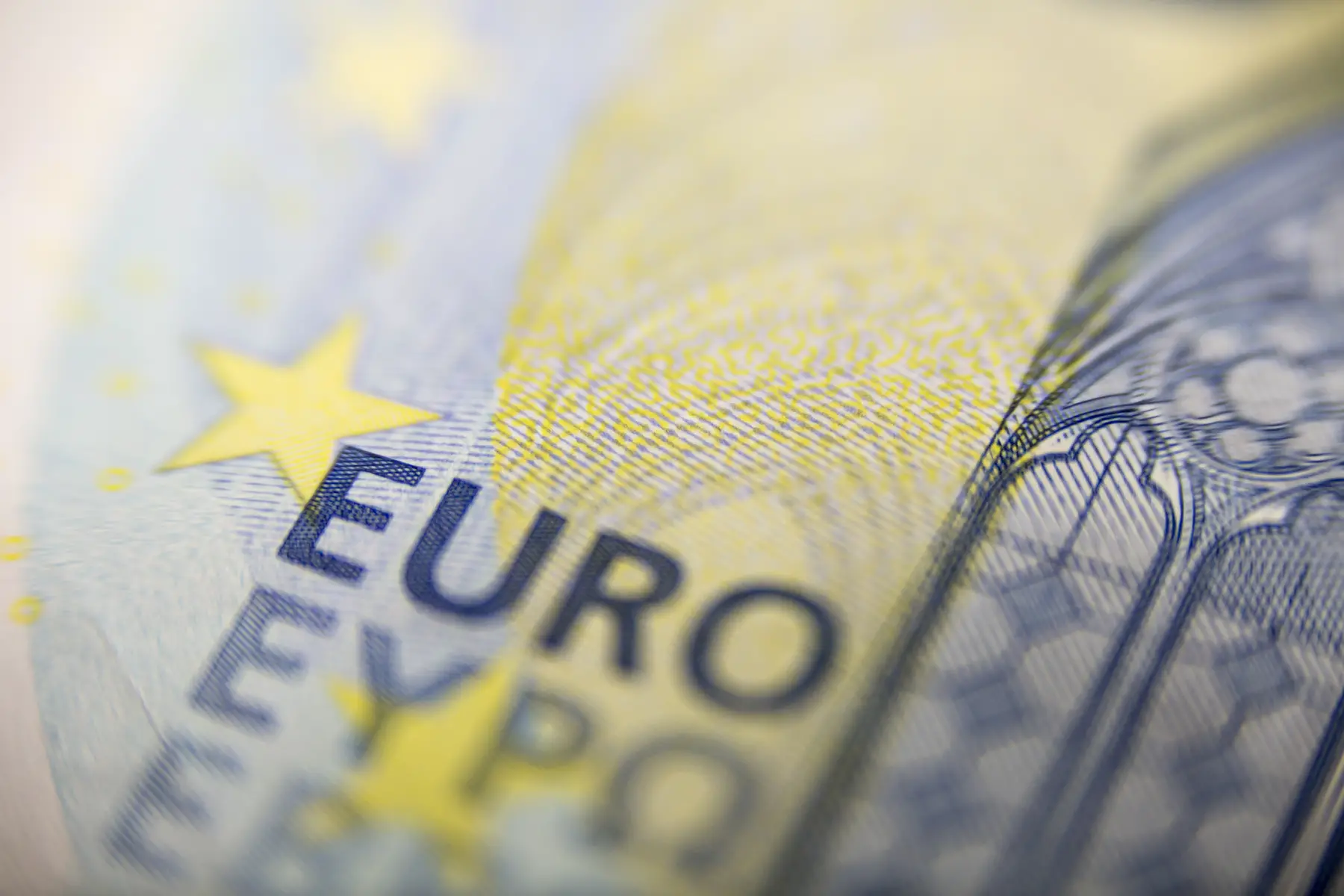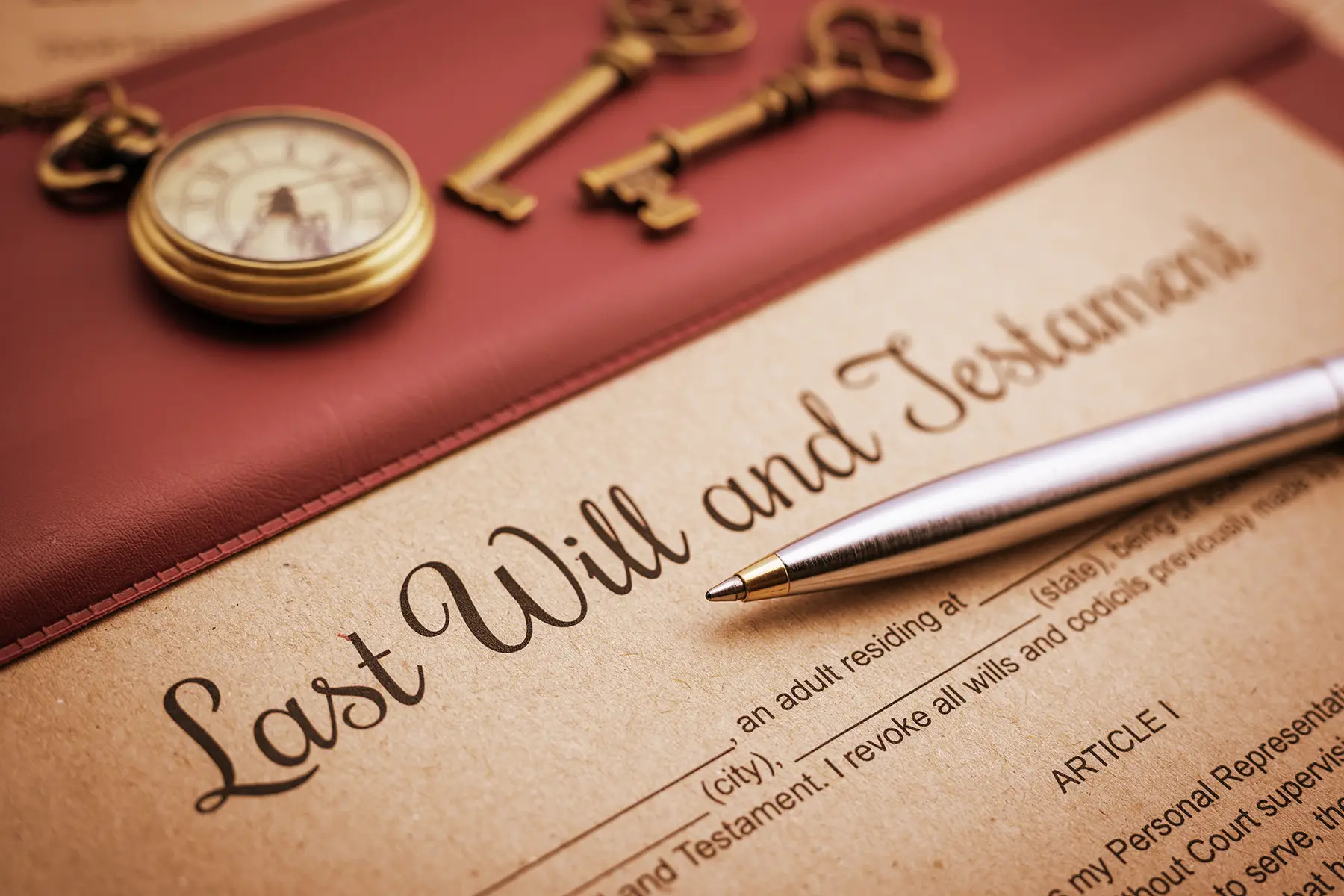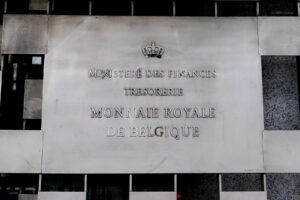This guide on estate and inheritance taxes in Belgium includes advice on the following topics:
MeDirect
Get more from your money with MeDirect. This Belgian savings and investment bank is home to financial experts who can help you expand your investment portfolio and track your stocks and shares. Enjoy in-app accessibility and let your money work for you with MeDirect.
Belgian inheritance law and succession rules
Belgian inheritance law is based on residence. This means that if Belgium is the country where you normally live and where your family and work are, then its laws and taxes usually apply upon your death.

Inheritance law and tax in Belgium apply to the whole estate, including any real estate owned abroad.
It is possible, however, for foreign residents to have their estate handled according to the laws of their home country instead.
Inheritance rules in Belgium
Belgian inheritance law follows a system of forced heirship. This means there are some rules as to how the deceased’s estate is distributed, with a certain amount automatically passed to heirs without the need for probate or court order.
Rules introduced in September 2018 mean that children of the deceased must share half of the estate, regardless of how many children there are. The other half of the estate passes on to a spouse or partner for the rest of their life.
An overhaul of inheritance rules allowed people planning their estates to be more flexible over setting up agreements within their families.
The rules also cover how gifts before death are valued as part of an inheritance.
Rather than property being valued based on the increase between the date of the gift and the inheritance being granted, values are now based on what the property was worth the day it was gifted, indexed to inflation on death.
Inheritance law for people with no will
If no will has been left, Belgian intestate law determines that the estate is divided equally in the following order of priority:
- Children and grandchildren
- Parents and grandparents
- Siblings and their relatives
- The Belgian government
The rights of the spouse in situations where there is no will depend on the family situation:
- If the deceased has one or more children, the spouse is entitled to earn dividends, interest, and rent from the estate.
- When there are no children but other legally recognized heirs, the spouse inherits the community property and is entitled to earn interest from any private property owned by the deceased.
- If there are no heirs, the spouse inherits the whole estate.
Can you reject an inheritance in Belgium?
All beneficiaries to an estate, whether as heirs or through a will, can choose whether to accept or reject their inheritance. Under Belgian law, there are three options:
- Accept an inheritance, which means obligation to pay debts even if they exceed the value of the estate.
- Accept under beneficium inventarii (benefit of the inventory), which means that debts cannot exceed the value of the estate.
- Reject the inheritance.
Accepting under beneficium inventarii and rejection must be given in a declaration to the clerk of a Belgian court.
EU inheritance law in Belgium
Citizens of European Union countries can choose whether Belgian laws or those in their country of nationality apply to their estate upon their death.

If you’re an expat living in Belgium and want the laws of your country of nationality to apply rather than Belgian law, you need to express this clearly in a will or separate declaration.
These laws then apply as long as they don’t oppose local public policy (e.g., discrimination of heirs based on gender or being born out of wedlock).
The EU rules do not apply to the following matters linked to your inheritance:
- Inheritance tax in Belgium
- Your civil status
- The property regime of your marriage/partnership (i.e., how your property should be divided after the death of your spouse/partner)
- Matters concerning companies
Inheritance tax in Belgium
Inheritance tax in Belgium (erfbelasting in Dutch or les droits de succession in French) is levied on all assets other than real estate outside Belgium (if the deceased lived in Belgium), and on real estate inside Belgium (if they were based abroad).
There is an exemption for tax purposes for diplomats living and Belgium and working at the European Union or the North Atlantic Treaty Organization (NATO).
Belgian tax is paid on the net value of the estate. This is the total value of assets plus corrections (e.g., debts, gifts, life insurance policies) minus any liabilities (e.g., outstanding loans, maintenance payments, hospital bills, funeral costs, capital taxes paid abroad).
Inheritance tax is a regional tax and thus varies from region to region. Belgian tax is paid to the region in which the deceased was a tax resident for the majority of the last five years of their life.
Inheritance tax in Brussels
Tax-free allowances of €15,000 apply to spouses and direct descendants/ascendants (with an extra €2,500 per year for children under 21 years of age). All others can claim a tax-free threshold of €1,250.
| Portion value | Children, parents, spouse, grandparents, grandchildren | Brothers, sisters | Uncles, aunts, nephews, nieces | Other heirs |
| Up to €12,500 | 3% | 20% | 35% | 40% |
| €12,500–25,000 | 3% | 25% | 35% | 40% |
| €25,000–50,000 | 3% | 30% | 35% | 40% |
| €50,000–100,000 | 8% | 40% | 50% | 55% |
| €100,000–175,000 | 9% | 55% | 60% | 65% |
| €175,000–250,000 | 18% | 60% | 70% | 80% |
| €250,000–500,000 | 24% | 65% | 70% | 80% |
| €500,000+ | 30% | 65% | 70% | 80% |
Inheritance tax in Flanders
Residents in Flanders are given a tax-free allowance of €500 for inheritances of less than €50,000.
| Portion value | Children, parents, spouse, grandparents, grandchildren | Brothers, sisters | Other heirs |
| Up to €50,000 | 3% | 25% (up to €35,000) | 25% (up to €35,000) |
| €50,000–250,000 | 9% | 30% (from €35,000 to €75,000), then 55% | 45% (up to €35,000 to €75,000) then 55% |
| €250,000+ | 27% | 55% | 55% |
Inheritance tax in Wallonia
The tax-free allowance for spouses and direct descendants/ascendants is €25,000 for inheritances less than €125,000, and €12,500 for inheritances more than €125,000 (with an extra €2,500 per year for children under 21 years of age). €620 tax-free is granted for all other heirs.
| Portion value | Children, parents, spouse, grandparents, grandchildren | Brothers, sisters | Uncles, aunts, nephews, nieces | Other heirs |
| Up to €12,500 | 3% | 20% | 25% | 30% |
| €12,500–25,000 | 4% | 25% | 30% | 35% |
| €25,000–50,000 | 5% | 35% (up to €75,000) | 40% (up to €75,000) | 60% (up to €75,000) |
| €50,000–100,000 | 7% | 50% | 55% | 80% |
| €100,000–150,000 | 10% | 50% (up to €175,000) | 55% (up to €175,000) | 80% |
| €150,000–200,000 | 14% | 65% | 70% | 80% |
| €200,000–250,000 | 18% | 65% | 70% | 80% |
| €250,000–500,000 | 24% | 65% | 70% | 80% |
| €500,000+ | 30% | 65% | 70% | 80% |
Taxes on family businesses transferred through inheritance
- Brussels: 3% flat rate (if the company meets certain conditions of employment, investment, and minimum shareholding).
- Flanders: businesses located within the EU are exempt if the deceased held at least 50% of shares and certain employment conditions are met.
- Wallonia: 3% maximum rate.
Paying inheritance tax in Belgium
All heirs to an estate must file an inheritance tax return (Dutch: aangifte van nalatenschap, French: déclaration de succession), either on an individual or collective basis.

While it’s possible to file this yourself, it can be complex; you may wish to ask a notary for help instead.
You’ll need to make this declaration at the local registry office where the deceased lived (Dutch: registratiekantoor, French: bureau de l’enregistrement). If you’ve rejected an inheritance, you still need to inform the registry office.
If the person died in Belgium, you have four months to file the return. However, this increases to five months for people who died elsewhere in Europe or six months elsewhere in the world.
Double taxation rules in Belgium
Belgium doesn’t usually grant any relief from double taxation with respect to inheritance tax. This means that assets can be subject to double taxation in some circumstances.
Only inheritance tax paid on real estate abroad can be exempt. Any other capital tax paid abroad can be offset as a liability against the net value of the estate.
Belgium only has double tax treaties regarding inheritance tax with France and Sweden.
Transfer tax: inheritance tax for non-residents of Belgium
If the person who died was a non-resident, transfer duty is levied rather than inheritance tax. This differs in the sense that it only covers any Belgian real estate that the deceased owned. Funeral costs can’t be deducted from the overall bill.
In Brussels and Flanders, real estate debts can be deducted if the deceased was an EU or EEA citizen. In Wallonia, however, the country of origin and residence is immaterial.
While inheritance tax won’t be levied in Belgium, the deceased may be subject to the inheritance tax rules of their country of origin.
Reducing your Belgian inheritance tax
Belgium operates a three-year rule for gifting movable and immovable property. This means that if you give something to an heir and then die within three years, they’ll then need to pay inheritance tax on the value of the gift.

If you register the gift with a notary at the time, you’ll instead need to pay gift tax. However, your heir will not be subject to tax on the gift.
In Brussels, gift tax on movable assets ranges from 3% for direct heirs to 7% for other beneficiaries. For immovable assets, it ranges from 3% (assets gifted to direct heirs worth up to €150,000) to 40% (assets gifted to unrelated parties worth over €450,000).
Gift tax in Wallonia on movable assets varies from 3.3% to 7.7%, depending on your relationship with the donor. For immovable assets, the rates are the same as in Brussels.
Parents in Belgium can gift a property to their child but maintain the right to use it for the rest of their life. This means they’ll be subject to gift tax at the time but their heirs won’t be subject to tax.
Useful resources
- Belgian Ministry of Finance – guide to calculating and paying inheritance tax in Belgium (in Dutch and French)
- Notaire.be – how to find a notary in Belgium
- Belgian Ministry of Foreign Affairs – guide to succession, wills, and gifts
- European Union – cross-border succession law
- European Commission – FAQs on cross-border inheritance tax





